Resource Center
The Transit Workforce Center is pleased to host a curated collection of publications and other materials to assist stakeholders engaged in transit workforce development. The Resource Center includes case studies, training materials, research reports, and other materials of interest, including publications produced by federal government agencies, transit organizations, and independent research entities. Resources may be filtered by topic, resource type, and transit mode. This TWC blog post explains how to use the Resource Center.
We are continuing to update the Resource Center regularly. Please contact us via the Request Help menu option if you would like assistance using the Resource Center or are looking for resources on a particular topic. We also welcome suggestions of topics or specific resources to add.
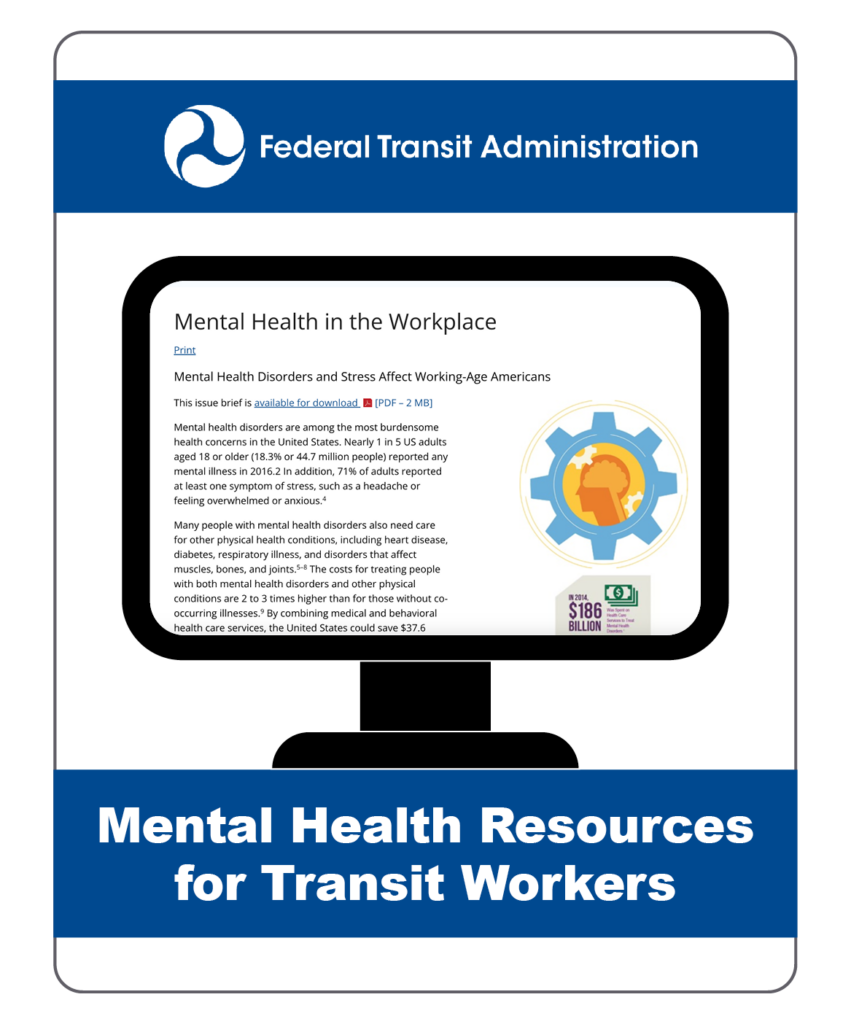
Mental Health Resources for Transit Workers
The Federal Transit Administration has aggregated the mental health resources to support transit industry workers during challenging times. Topics include suicide prevention, active shooter preparedness, mental health first aid, and more.
U.S. Department of Tranportation, Federal Transit Administration
December 2023
TOPICS: Safety and Health
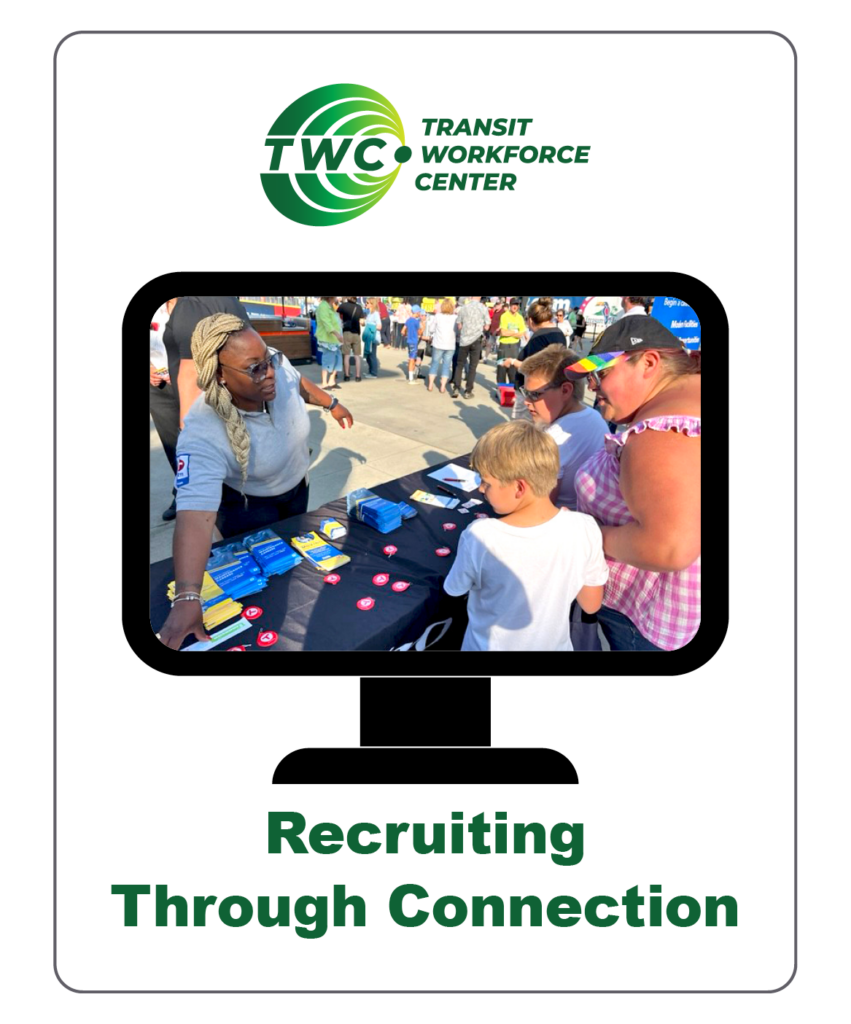
Recruiting Through Connection
This case study describes the OECC (Operators Engaging and Connecting Communities) program in Metro Transit, MN, which sends operators out to community events as a recruitment tool and to help the community understand the role of the operator.
Transit Workforce Center
November 2023
LEARN MORE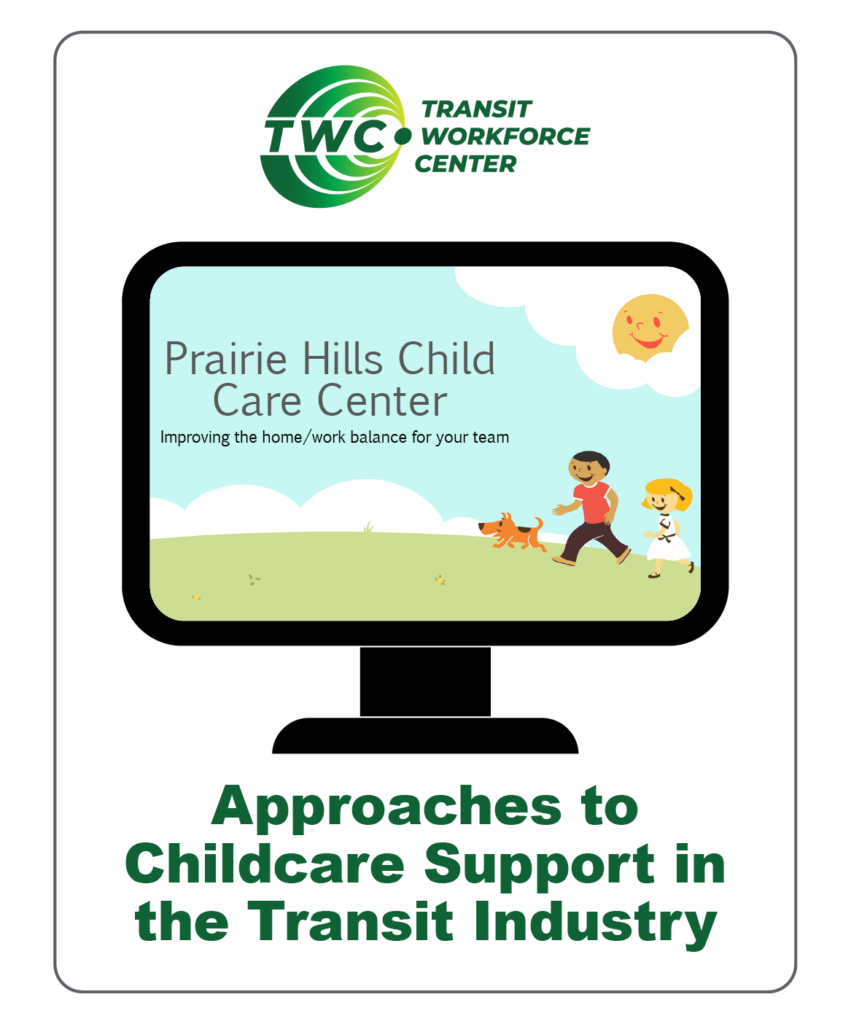
Approaches to Childcare Support in the Transit Industry
Across the nation, the lack of access to affordable and accessible childcare is often a major employment barrier for workers in the transit industry. TWC hosted a pivotal discussion on this issue in the webinar, “Approaches to Childcare Support in the Transit Industry”.
Hear from Barb Cline, Executive Director of Prairie Hills Transit (Spearfish, South Dakota), and Charles Jenkins, Director of the Transport Workers Union Local 100 – New York City Transit Training & Upgrading Fund, who share their approaches to creating childcare solutions tailored for their transit employees. They will delve into the inception of their programs, their ongoing hurdles, and the successes that have marked their journey.
Transit Workforce Center
November 2023
TOPICS: Diversity, Equity, Inclusion, and Access, Policy and Planning, Retention, Workforce Shortage
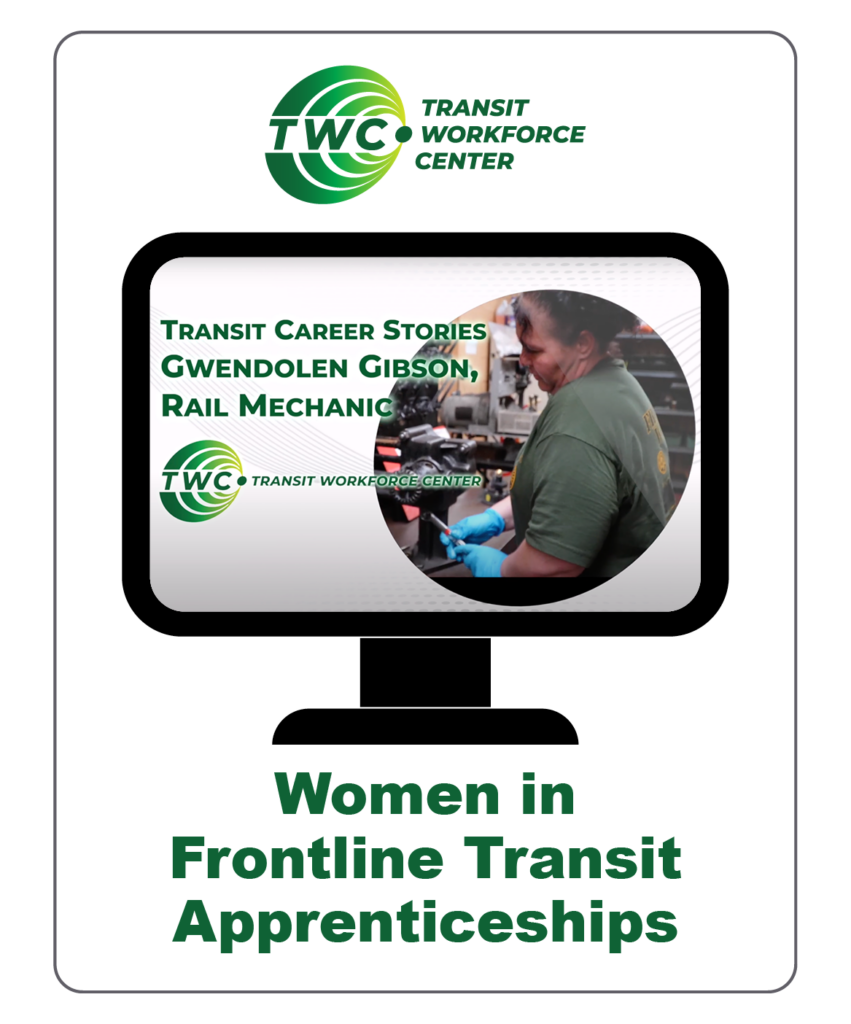
Women in Frontline Transit Apprenticeships
In honor of National Apprenticeship Week, TWC celebrated the tremendous progress made by transit agencies in implementing apprenticeship programs for various transit occupations. Women have long been under-represented in the most high-paying, highly skilled frontline transit occupations. The number of women in registered apprenticeship programs is increasing across industries, and public transit is no exception. Women from public transit agencies across the country have found rewarding careers with family-sustaining wages through apprenticeship.
This event featured a presentation from Liz Weiss, Deputy Director of the Working for America Institute along with a panel of women in registered apprenticeship programs from COTA/TWU Local 208 and MARTA/ATU Local 732.
Transit Workforce Center
November 2023
TOPICS: Apprenticeship, Career Pathways, Diversity, Equity, Inclusion, and Access, Labor-Management Partnerships
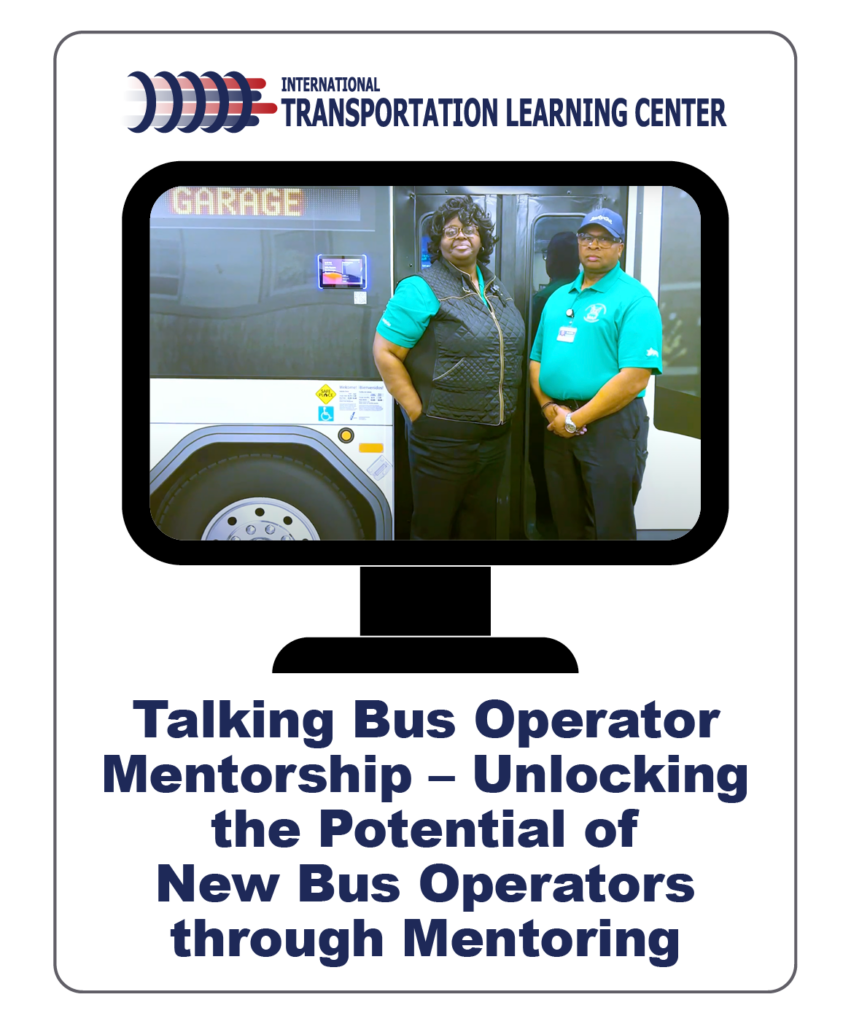
Talking Bus Operator Mentorship – Unlocking the Potential of New Bus Operators through Mentoring
Bus Operator Mentors from WMATA (Washington, D.C./ATU Local 689) and IndyGo (Indianapolis, IN/ATU Local 1070) speak about the benefits of mentorship programs. IndyGo’s President and CEO Inez Evans and ATU’s Director of Apprenticeships and Workforce Development Jamaine Gibson also share their thoughts on the importance of establishing these programs.
International Transportation Learning Center
November 2023
LEARN MORE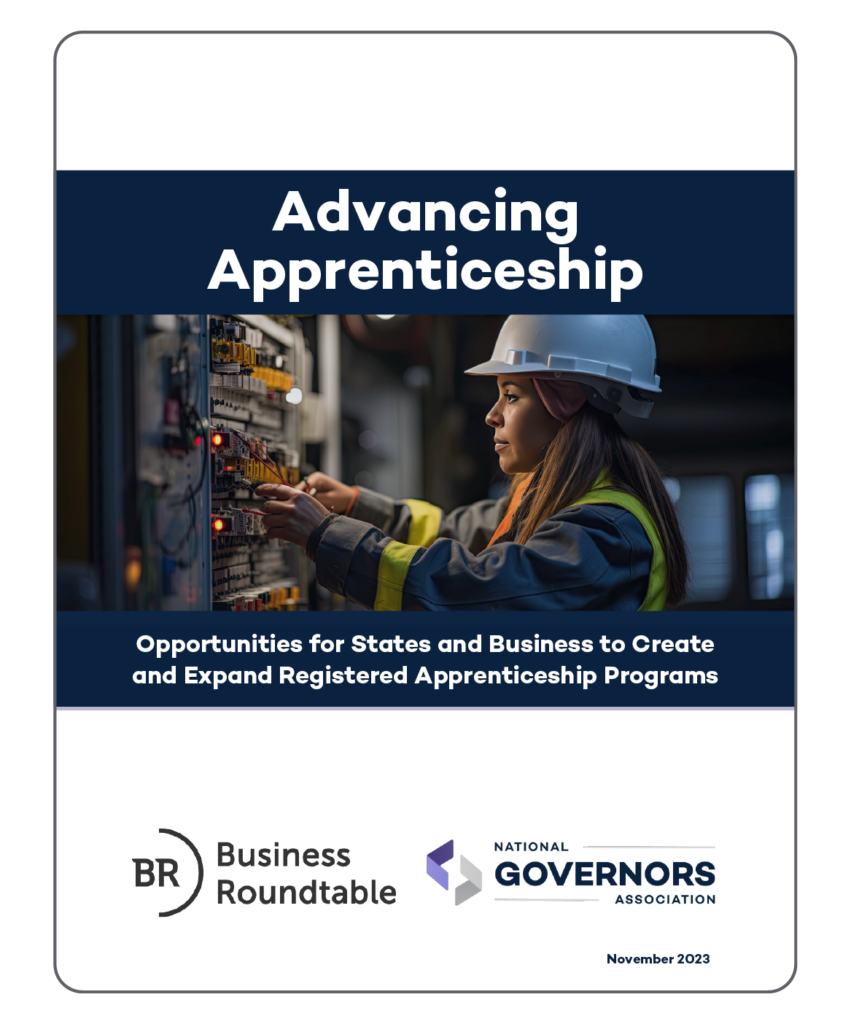
Advancing Apprenticeship: Opportunities For States And Business To Create And Expand Registered Apprenticeship Programs
This publication highlights the significance of Registered Apprenticeship Programs (RAPs) as one of several strategies and opportunities that employers and states can implement and offer to individuals as a viable path toward securing and prospering in a career. Registered Apprenticeship plays an important role in the U.S. economy and workforce ecosystem by satisfying employer talent needs while providing training and employment pathways for individuals in family-sustaining, in-demand careers. A registered apprenticeship is an intensive program that offers an individual paid on-the-job experience, coupled with classroom learning that together provides a jobseeker with the necessary skills to secure gainful employment.
National Governors Association
November 2023
TOPICS: Apprenticeship, Career Pathways, Policy and Planning
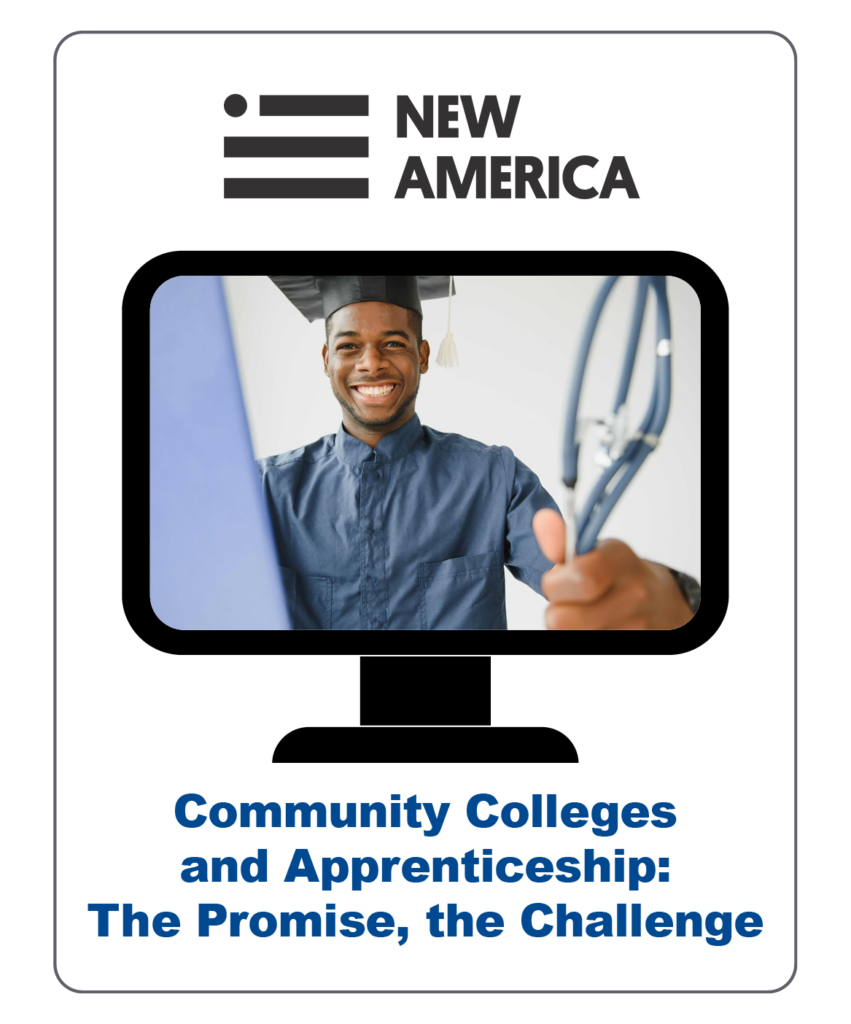
Community Colleges and Apprenticeship: The Promise, the Challenge
To better understand the challenges and opportunities facing community colleges that want to expand apprenticeship opportunities to their students, New America conducted a year-long study. They spoke to apprenticeship, workforce development, and community college leaders about the community colleges role in expanding apprenticeship.
New America Center on Education and Education Policy
November 2023
TOPICS: Apprenticeship, Career Pathways, Policy and Planning
Based on these conversations, we chose case studies and conducted in-depth interviews with leaders from the Community College System of New Hampshire’s ApprenticeshipNH, Arapahoe in Colorado, San Jacinto in Texas, and Howard Community College in Maryland’s programs in IT and cybersecurity, and Coastal Alabama Community College’s nursing apprenticeship.
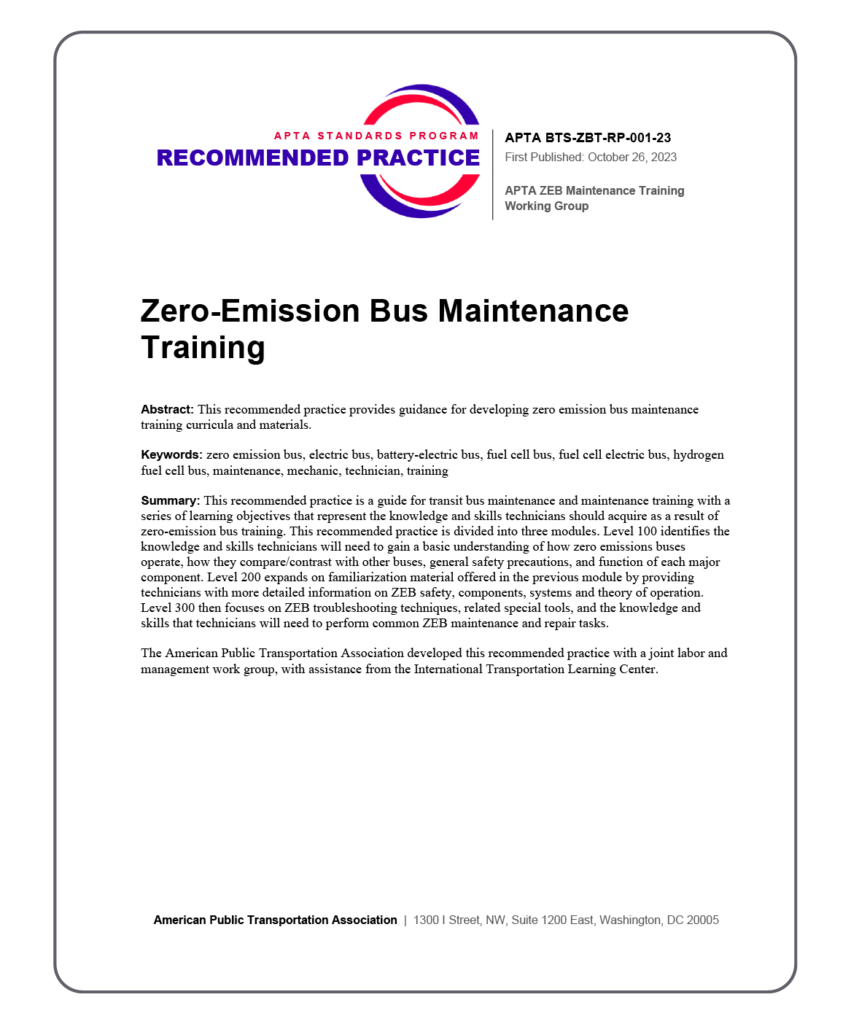
Zero-Emission Bus Maintenance Training Standards
This recommended practice provides guidance for developing zero emission bus maintenance training curricula and materials.
American Public Transportation Association
October 2023
TOPICS: Training, Zero Emission Buses
This recommended practice is a guide for transit bus maintenance and maintenance training with a series of learning objectives that represent the knowledge and skills technicians should acquire as a result of zero-emission bus training. This recommended practice is divided into three modules. Level 100 identifies the knowledge and skills technicians will need to gain a basic understanding of how zero emission buses operate, how they compare/contrast with other buses, general safety precautions, and function of each major component. Level 200 expands on familiarization material offered in the previous module by providing technicians with more detailed information on ZEB safety, components, systems and theory of operation. Level 300 then focuses on ZEB troubleshooting techniques, related special tools, and the knowledge and skills that technicians will need to perform common ZEB maintenance and repair tasks.
The American Public Transportation Association developed this recommended practice with a joint labor and management work group, with assistance from the International Transportation Learning Center.







